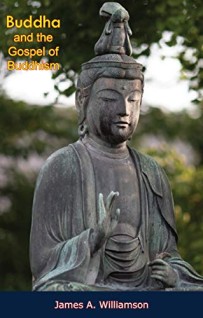Buddha and the Gospel of Buddhism

“The aim of this book is to set forth as simply as possible the Gospel of Buddhism according to the Buddhist scriptures, and to consider the Buddhist systems in relation, on the one hand, to the Brahmanical systems in which they originate, and, on the other hand, to those systems of Christian mysticism which afford the nearest analogies. At the same time the endeavour has been made to illustrate the part which Buddhist thought has played in the whole development of Asiatic culture, and to suggest a part of the significance it may still possess for modern thinkers.
“The way of the Buddha is not, indeed, concerned directly with the order of the world, for it calls on higher men to leave the marketplace. But the order of the world can only be established on a foundation of knowledge: every evil is ultimately traceable to ignorance. It is necessary, then, to recognize the world for what it truly is. Gautama teaches us that the marks of this life are imperfection, transcience, and the absence of any changeless individuality. He sets before us a summum bonum closely akin to the Christian mystic conception of ‘self-naughting.’ Here are definite statements which must be either true or false, and a clearly defined goal which we must either accept or refuse. If the statements be false, and if the goal be worthless, it is of the highest importance that the former should be refuted and the latter discredited. But if the diagnosis be correct and the aim worthy, it is at least of equal importance that this should be generally recognized: for we cannot wish to perpetuate as the basis of our sociology a view of life that is demonstrably false or a purpose demonstrably contrary to our conception of the good.
“This book is designed, therefore, not as an addition to our already overburdened libraries of information, but as a definite contribution to the philosophy of life.”—Ananada K. Coomaraswamy
Ananda Kentish Coomaraswamy, (born Aug. 22, 1877, Colombo, Ceylon—died Sept. 9, 1947, Needham, Mass., U.S.), pioneer historian of Indian art and foremost interpreter of Indian culture to the West. He was concerned with the meaning of a work of art within a traditional culture and with examining the religious and philosophical beliefs that determine the origin and evolution of a particular artistic style. A careful scholar, he also established an art historical framework for the study of the development of Indian art.
To buy the book click on the link below!

 English
English Italian
Italian